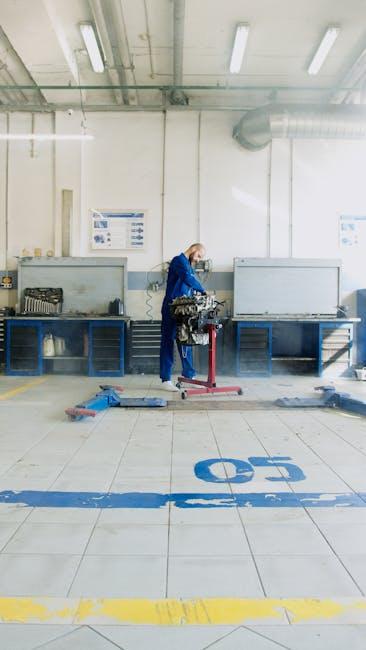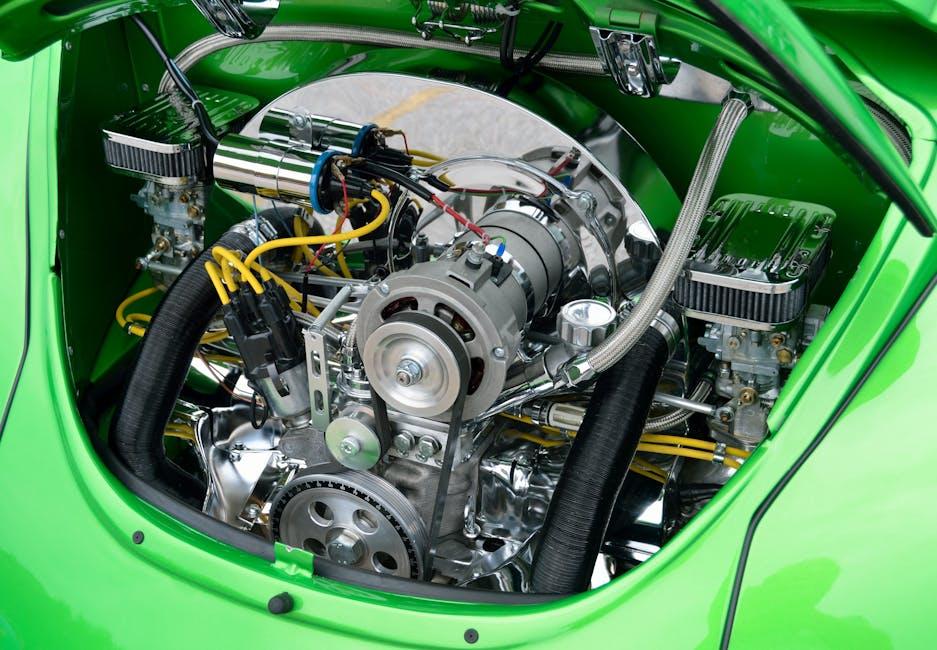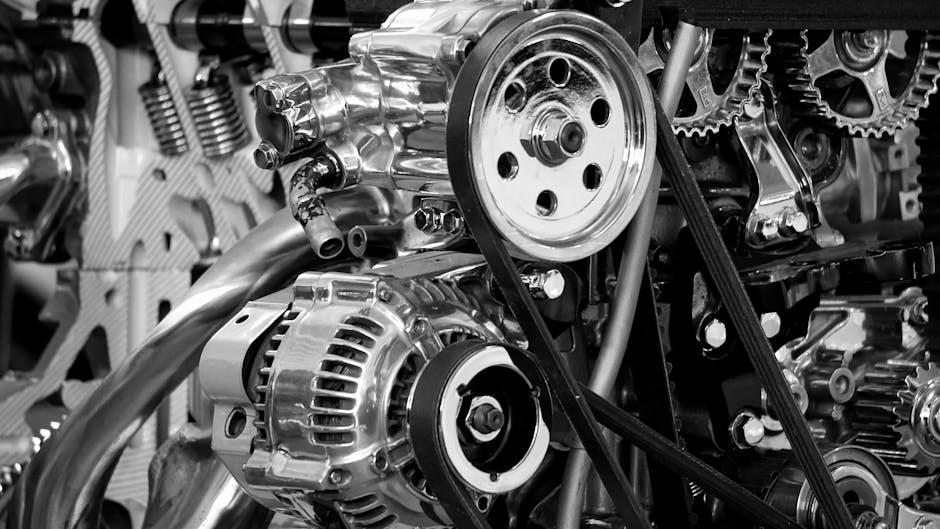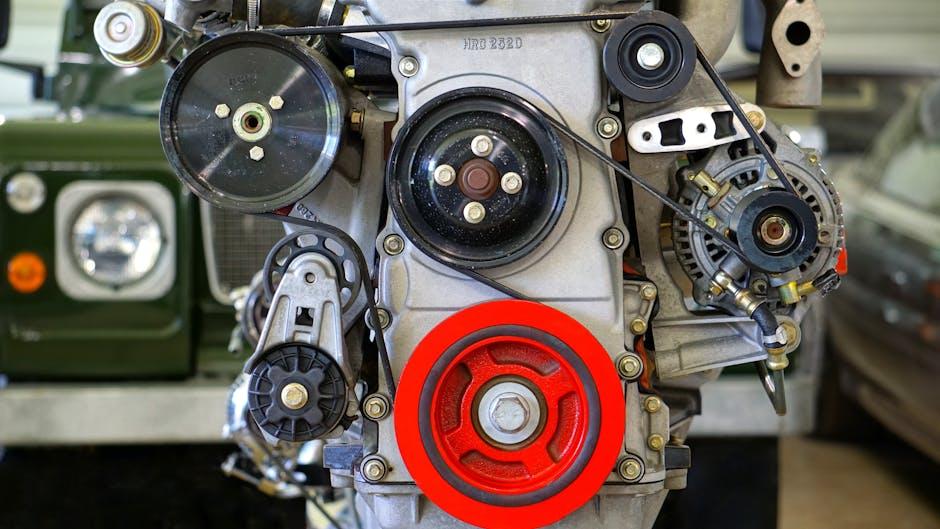In the intricate world beneath your vehicle’s hood, the transmission plays the starring role in converting your engine’s power into the smooth motion that gets you from point A to point B. Yet, like any complex system, transmissions can experience wear and tear, leading to a variety of repairs that range from minor adjustments to major overhauls. Understanding the common types of transmission repairs and their associated costs can prepare drivers for what to expect when trouble arises. This article journeys through the most frequent transmission issues, breaking down the repairs involved and the price tags that often accompany them—guidance that can bring clarity to a sometimes confusing and costly aspect of car maintenance.
Table of Contents
- Common Signs Your Transmission Needs Repair
- Understanding the Most Frequent Transmission Issues
- Breaking Down Transmission Repair Costs
- How to Choose the Right Transmission Repair Shop
- Preventative Maintenance Tips to Avoid Costly Repairs
- Evaluating When to Repair or Replace Your Transmission
- Q&A
- In Retrospect

Common Signs Your Transmission Needs Repair
When your vehicle’s transmission starts signaling distress, it’s vital to recognize the cues early to avoid costly repairs. One of the most common indicators is unusual noises such as whining, clunking, or buzzing sounds when changing gears. You might also experience delayed or rough shifting, where the transmission hesitates or jerks unexpectedly during gear changes. Keep an eye on any leaking transmission fluid; its reddish color and sweet smell make it distinguishable from other automotive fluids. A burning smell can also mean the fluid is overheating, indicating internal damage or worn components.
Additionally, pay attention to any warning lights on your dashboard, especially the check engine light, which often illuminates for transmission issues. Other subtle signs include your car slipping out of gear or struggling to accelerate smoothly. Below is a quick reference table highlighting these symptoms and what they could signify:
| Symptom | Possible Cause |
|---|---|
| Whining or Clunking Noises | Worn gears or bearings |
| Delayed Gear Engagement | Low transmission fluid or pressure issues |
| Fluid Leaks | Damaged seals or gaskets |
| Slipping Gears | Worn clutch or bands |
| Burning Smell | Overheated transmission fluid |

Understanding the Most Frequent Transmission Issues
Transmission problems often arise from common wear and tear or neglect, making it essential to recognize the signals early. Slipping gears, where the transmission unexpectedly changes gears or loses acceleration power, is one of the primary indicators of trouble. Alongside that, drivers may experience delayed or rough shifting, which not only hampers smooth driving but also hints at deeper mechanical or fluid-related issues. Another frequent concern is fluid leaks, usually noticed by a distinct red or brown puddle beneath the vehicle, signaling either a cracked seal or a faulty gasket.
Understanding these usual symptoms can help car owners take timely action and avoid costly repairs. To simplify the common issues involved in transmission repair, here is a quick overview:
| Issue | Possible Cause | Common Repair |
|---|---|---|
| Slipping Gears | Worn Clutch Plates | Clutch Replacement |
| Rough Shifting | Low Transmission Fluid | Fluid Top-Up or Flush |
| Fluid Leaks | Damaged Seals | Seal Replacement |

Breaking Down Transmission Repair Costs
Transmission repairs can vary widely in price due to the complexity and labor intensity involved. Some of the most common issues include fluid leaks, clutch replacements, solenoid repairs, and full transmission rebuilds. Each repair requires a different level of expertise and parts replacement, which directly impacts the overall cost. For instance, a simple fluid flush and leak repair might cost only a few hundred dollars, while a complete rebuild or replacement often runs into the thousands.
When budgeting for transmission work, consider not only parts and labor but also the vehicle type and transmission model. Here’s a brief overview of typical repairs and their average cost ranges:
| Repair Type | Estimated Cost |
|---|---|
| Transmission Fluid Change | $100 – $250 |
| Solenoid Replacement | $300 – $650 |
| Clutch Replacement | $800 – $1,500 |
| Transmission Rebuild | $1,500 – $3,500 |
| Full Transmission Replacement | $2,500 – $4,500 |
Understanding these costs upfront can help you make informed decisions and avoid unexpected expenses during vehicle maintenance.

How to Choose the Right Transmission Repair Shop
Finding the ideal transmission repair shop starts with assessing expertise and trustworthiness. Look for technicians who specialize in transmissions and have certifications from recognized automotive institutions. Reading customer reviews and asking for personal recommendations can reveal valuable insights into a shop’s reliability and quality of service. It’s essential to ensure the shop offers transparent diagnostics and provides detailed estimates, so you know exactly what repairs are needed and how much they will cost before committing to any work.
Another critical factor is the availability of warranty and quality parts. A reputable repair shop should stand behind their work with warranties on both parts and labor, giving you peace of mind. Additionally, consider shops that use OEM (Original Equipment Manufacturer) parts, as these are specifically designed for your vehicle’s make and model and can significantly impact the longevity of the repair. Price comparisons are useful but beware of prices that seem too good to be true; quality often comes at a fair cost, reflecting the skill and materials used.

Preventative Maintenance Tips to Avoid Costly Repairs
Keeping your transmission in peak condition starts with routine checks and timely interventions. One of the simplest yet most effective strategies is to regularly inspect and change the transmission fluid. This vital lubricant not only cools but also protects the internal parts from wear and corrosion. Neglecting fluid upkeep can lead to overheating and premature component failure. Additionally, be vigilant about unusual noises, slipping gears, or delayed shifts—they are early warnings that your transmission may need attention before minor issues turn into major expenses.
Another practical approach involves adopting proper driving habits that reduce unnecessary strain on the transmission. Avoid quick starts and sudden stops, especially in stop-and-go traffic, and try to minimize towing overloads beyond your vehicle’s capacity. Maintaining the transmission filter and cooling system helps prevent contaminants and heat buildup, which can degrade performance. Below is a quick checklist to guide your maintenance routine:
- Check transmission fluid level and condition monthly
- Schedule fluid and filter changes every 30,000 to 60,000 miles
- Use recommended transmission fluid types
- Avoid harsh driving conditions when possible
- Have a professional inspect the transmission during regular service visits
| Maintenance Item | Recommendation | Frequency |
|---|---|---|
| Transmission Fluid Check | Visual and level inspection | Monthly |
| Fluid & Filter Change | Replace with manufacturer-approved fluid | 30,000–60,000 miles |
| Professional Inspection | Comprehensive system diagnostic | Every service visit |

Evaluating When to Repair or Replace Your Transmission
Deciding whether to repair or replace your transmission often hinges on several key factors, including the vehicle’s age, mileage, and the extent of the damage. Minor issues like fluid leaks or worn-out seals usually warrant simple repairs, which can be cost-effective and extend the life of your transmission. However, if you’re facing problems such as slipping gears, complete failure to engage, or severe internal damage, these symptoms might indicate that a full replacement or a rebuild is the smarter, long-term investment.
To help clarify your options, consider these critical points before making a decision:
- Cost Comparison: Sometimes, the repair cost approaches or exceeds the value of your vehicle, tipping the scale toward replacement.
- Vehicle Longevity: Older vehicles with high mileage may not justify the cost of major repairs.
- Warranty Coverage: Repair work often comes with warranties that might not apply to a used replacement transmission.
- Time and Labor: Transmission repairs can take days; replacement options might be quicker if you find a ready-to-install unit.
| Scenario | Recommended Action | Estimated Cost Range |
|---|---|---|
| Minor fluid leaks or sensor failure | Repair | $150 – $400 |
| Worn clutch or solenoid issues | Repair or rebuild | $500 – $1,500 |
| Severe internal damage or total failure | Replace or rebuild | $2,500 – $4,500 |
Q&A
Q: What are the most common transmission repairs car owners face?
A: Some of the most frequent transmission repairs include fluid leaks, clutch replacements (for manual transmissions), solenoid repairs, torque converter fixes, and complete transmission rebuilds or replacements. These issues often arise from wear and tear, poor maintenance, or overheating.
Q: How can I tell if my transmission needs repair?
A: Common warning signs include slipping gears, delayed or rough shifting, strange noises (like grinding or whining), fluid leaks under your car, and warning lights on your dashboard. If you notice these symptoms, it’s best to get your transmission inspected promptly.
Q: What does a transmission fluid leak repair typically involve?
A: Repairing a transmission fluid leak usually means locating the source—often a faulty seal or gasket—and replacing it. Mechanics will also check fluid levels and refill or replace the fluid if necessary to ensure smooth operation.
Q: How much does a transmission fluid change cost?
A: Transmission fluid changes generally range from $80 to $250, depending on the vehicle make, model, and the type of fluid required. A fluid change can help prevent serious transmission problems if done regularly.
Q: Is a clutch replacement expensive?
A: Clutch replacements typically cost between $500 and $1,500. The exact price varies based on the vehicle and labor rates. Since clutch repair requires several hours of work, labor often makes up the majority of the cost.
Q: What is a solenoid repair, and how much does it cost?
A: The transmission solenoid controls fluid flow within the transmission. If faulty, it can cause shifting issues. Repair or replacement costs usually range from $150 to $400, depending on the solenoid’s location and complexity.
Q: When does a transmission rebuild or replacement become necessary?
A: If the transmission has severe internal damage—like broken gears or severely worn components—a rebuild or replacement may be required. A rebuild reuses your existing transmission parts, while a replacement involves installing a new or remanufactured unit.
Q: What are the typical costs for rebuilding or replacing a transmission?
A: Transmission rebuilds often cost between $1,500 and $3,000, whereas a full replacement can range from $2,500 to $5,000 or more. Prices vary widely depending on the vehicle and labor charges.
Q: Can I avoid costly transmission repairs?
A: Regular maintenance is key. Changing transmission fluid at recommended intervals, addressing leaks promptly, avoiding aggressive driving, and having periodic inspections can extend transmission life and reduce repair costs.
Q: Should I trust a dealership or independent mechanic for transmission repairs?
A: Both can offer quality repairs, but dealerships may charge more. Independent mechanics, especially those specializing in transmissions, often provide competitive pricing and personalized service. Always check reviews and certifications before deciding.
In Retrospect
In the intricate dance of gears, clutches, and fluid, your vehicle’s transmission plays a starring role—one that demands attention and care. Understanding the common repairs and their costs not only prepares you for the road ahead but also empowers you to make informed decisions when service time arrives. While transmission repairs can range from minor fixes to major overhauls, staying vigilant to signs of trouble and addressing issues promptly can keep your ride shifting smoothly for miles to come. After all, knowing what’s under the hood is the first step toward driving with confidence and peace of mind.


4 Comments
tfx19q
tfx19q
That’s a fascinating point about how gaming platforms are evolving to reflect cultural values! BigBunny seems to really embrace that, creating a unique experience. Exploring options like bigbunny slot could be a fun way to connect with that heritage – and maybe get lucky! 😉
That’s a fascinating point about how gaming platforms are evolving to reflect cultural values! BigBunny seems to really embrace that, creating a unique experience. Exploring options like bigbunny slot could be a fun way to connect with that heritage – and maybe get lucky! 😉